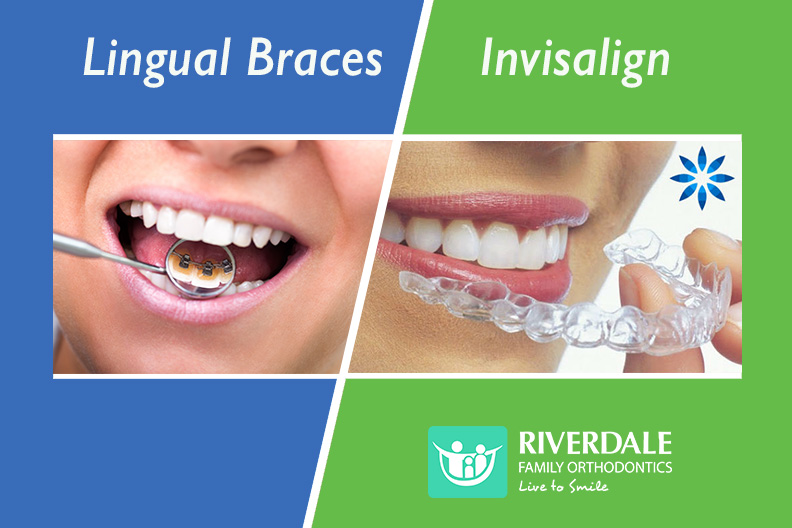Riverdale, Bronx, NY – Did you know that nearly one in five of today’s orthodontic patients is an adult? There are many options for straightening teeth that won’t draw unwanted attention to an already imperfect smile, and adults everywhere are learning more about the more aesthetically pleasing options that are now available.
Two popular options are lingual braces and Invisalign clear aligners. But which is the better option? Dr. Catherine Woo, a Bronx-area orthodontist explains the two options.
“Both options offer patients a cosmetically nicer way to straighten their smiles because both are nearly invisible to others,” says Dr. Woo. “Technology has improved both of these options significantly in recent years.”
What are lingual braces and what should you know?
Lingual braces are metal braces that are placed along the tongue side of the teeth, rendering them invisible and hidden from view to others. The process starts when your orthodontist takes impressions or a scan of your teeth, then sends them to a dental lab to have customized brackets created. Then, just like with traditional braces, a system of brackets and wires will put pressure on your teeth to gradually guide them to their desired positions. The main advantage of lingual braces is that they look very nice, since they are hidden very well from view.
Due to their position next to the tongue, lingual braces can take longer to get used to than standard braces or clear aligners. The metal brackets and wires tend to cause some soreness of the tongue, especially in the first few weeks. It is also common to have difficulty with your speech once lingual braces are placed, and you may notice a small lisp when you speak. Like standard braces, it is important to avoid certain foods in your diet to prevent damage to the the braces and harm to your teeth. In general, hard, crunchy, chewy and sticky foods should be avoided. Lingual braces generally need closer observation than other types of braces, so you may have more frequent check-ups with your orthodontist to ensure everything is working properly. Not every orthodontic patient will be an ideal candidate for lingual braces. Depending on your bite or malocclusion, it may be preferred not to use lingual braces.
But what about Invisalign clear aligners?
Invisalign aligners are made of a smooth, clear plastic. Because they are clear, they’ll be almost invisible in your mouth. And because they are smooth, they won’t cause irritation to the cheeks in the way metal brackets can.
The aligners are removable, so they work differently from braces. Like braces, they put gentle pressure on the teeth to move them over time, but they must be worn close to 24 hours per day in order to deliver the constant pressure needed to most effectively move the teeth. Aligners are generally easier to adjust to than lingual braces. Since they are removable, the teeth and aligners are easier to clean than braces, and patients with aligners generally don’t have to make any changes to their diets. It’s important to remove the aligners whenever you eat or drink anything other than water, and to brush and floss regularly to keep everything clean and healthy.
Aligners are changed out for new ones every one to two weeks, and you’ll have check-ups with your orthodontist every couple months to ensure everything is staying on track. Usually treatment will take about as long as it would with braces. As with lingual braces, certain patients may not be great candidates for Invisalign.
So which choice is best for you?
“The choice between lingual braces and Invisalign usually comes down to what will fit best into each patient’s life,” says Dr. Woo. “While both options can be great choices, patients tend to adapt to life with aligne, s more seamlessly than they do with lingual braces, and for that reason Invisalign tends to be more popular than lingual braces. That said, the best way to get all the information you need to decide what’s best for you is to see an orthodontist for a consultation.”
If you are interested in learning more about cosmetic options for straightening your smile, call Dr. Woo at Riverdale Family Orthodontics today at 718-884-7700.


No Comments